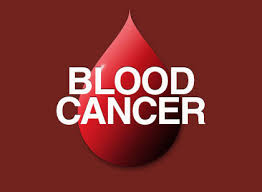This week has been treatment week, so Monday and Tuesday are filled up, but I always try and make the most of my time, and am generally communicating via Twitter or talking to staff and patients. I have a continual thirst for information.I managed to talk to a good number of patients, and also a couple of very senior Health Professionals.
As you know, my 'crusade' is to improve support for people affected by cancer. Obviously, I make my own observations of things, during my endless visits to hospitals, but I am intrigued to see how other people view their situation. Do patients feel that things could be improved or are they content with what is being done? I also wonder if Health Professionals feel that more should be done, or they believe that the right quality and quantity of support is available.
I was lucky enough to talk to two inexperienced patients this week, in very different settings. Both had diseases and treatment plans similar to my own.I don't know why, but I am always shocked at still, how little support people receive, outside their family and friends.It seems they have had a couple of brief chats, been given some information booklets, and then put into the system.Of course, although advised not to, most people take to the Internet to find out more,and that's where the troubles begin.
Information, is only part of the story of support.We also need help once we have the information. It really feels like it is assumed the job is done, when you have been handed some books about your disease and treatment. Sure, we have come a long way, as even only ten years ago we were struggling to find any good information.But now we are swimming in it. Booklets, constantly updated and minute by minute news on the Internet.However, we need to progress from here!
Much more practical support is required.We actually need to invest more time in each patient, to help them through their psychological and emotional issues.To understand them as a unique person, not just a case file. We have to prepare people as best we can, for their treatment, and offer support as they continue on their path. In this day and age it is not right that we still see so many frightened people, starting treatment, because we most definitely can do more.
Not only on the treatment path is this true, but it gains momentum, once you leave the perceived safety of your hospital. In most cases, once the clinicians have done their work, you are let loose, to make the best of things, in what is very definitely a new world for you.Now with different information in your hand, you try and put your life back together.
The people I have talked to this week, describe, their views, of disjointed services, and poor communication. Almost finding people, by trial and error, meaning some maybe lucky, and others not so. Is it any wonder that people will then keep returning to the hospital, many with issues that could quite clearly be sorted at home or in a community setting. No one wants to be dependent on the system, but currently it is not helping us be independent.
As a business guy I understand the many issues involved here. Primarily of course finance. However sometimes with a different way of looking at things, there are ways of solving problems without spending stupendous amounts of money.
More people are being diagnosed, with cancer, and with advances in treatment, are living longer with the effects of it.There are many people like me, out there who would happily share experience, for the benefit of others, at whatever stage it was required. We are already doing 'buddying,' etc, but not really to the level required, and there are many different ways that experience can be harnessed, particularly with the use of social media.
The N.H.S do their thing, and charities do theirs. Sometimes they collaborate, sometimes they don't. Pilot schemes come and go, support groups open and close. Who takes responsibility here? Sometimes there can be so many organisations involved in your care, you get frustrated, as no one appears to take charge of your case. All designed to help you, but rarely coordinated, and more a scatter gun approach.
I am certain, that if more of the right support was given, there would be less of a burden on the system in the long term. But more importantly, more people would have a greater feeling of worth about their life. It is a wonderful thing to be given extended life, of course, but sometimes it can be very difficult making a new life, whilst trying to deal with health issues from the old one.
These are thoughts I have gathered, over the last few weeks, through my personal experience. What are your views? Perhaps you have a positive story of support you could share? I look forward to hearing from you.
You can also see more of my work on my new FACEBOOK page. Many thanks for your support.















.jpg)

